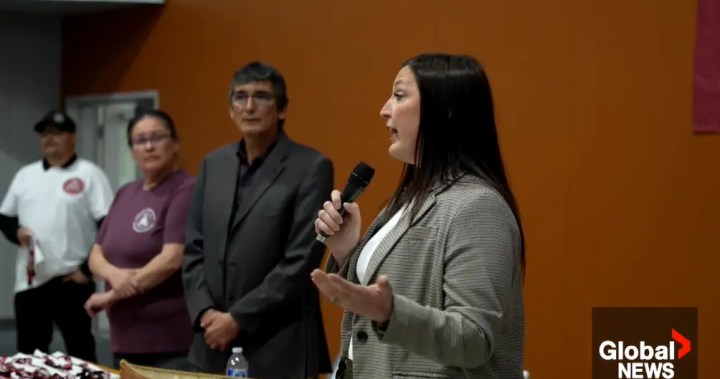To Laurie Bouvier, friendship centres are a place of safety. You are likely to smell food, hear laughter and see people being themselves.
“The people accessing friendship centres feel safe so they’re more open and in tune to what their needs are, rather than walking into another establishment, building or institution and not knowing how to navigate it,” said Bouvier, the executive director of the Aboriginal Friendship Centres of Saskatchewan.
“It’s a safe place and any time you bring food and smiles, you are more open to getting what you need from that.”
Bouvier is originally from Treaty One Territory and moved to Saskatchewan in 2003. She began working with AFCS, an Indigenous-owned and led organization with 150 friendship centres across the country, in 2016.
The AFCS provides advocacy for friendship centres and supports members in mental health and housing needs. There are 11 centres in Saskatchewan: La Loche, Buffalo Narrows, Île-à-la-Crosse, La Ronge, Meadow Lake, Prince Albert, North Battleford, Saskatoon, Yorkton, Regina and Fort Qu’Appelle.
“The goal is to ensure we have proper programs and services available to our urban Indigenous community members,” Bouvier said.

Get daily National news
Get the day’s top news, political, economic, and current affairs headlines, delivered to your inbox once a day.
“Friendship centres started at the kitchen table in the 1950s. Indigenous women and men were coming into cities or urban settings that didn’t know how to navigate cities or where to access proper programs and services.
“That’s where the movement began and we’ve evolved into what it is today to be the trusted service providers in health, youth programming, justice and food security, oftentimes seen as the trailblazer for reconciliation, for example, that’s where we are today.”
AFCS is also the voice of friendship centres at provincial and federal levels.
“The needs are always evolving. Friendship centres are very quick to adapt to what the needs of communities are,” she said.
“For example, you’ll find housing in the northern communities is a very big need. It’s a need everywhere, but northern communities just have a bit of a different reality of funding proper housing that they’ll often come to the friendship centre to access.
“During COVID, the centres were one of the only organizations in these smaller communities that were open to the public, so they became the ones that provided those provisions to the community.”
Check out the video at the top of the page for the full story.

© 2025 Global News, a division of Corus Entertainment Inc.





